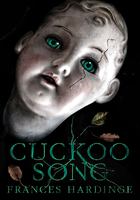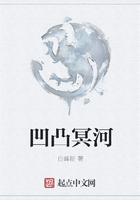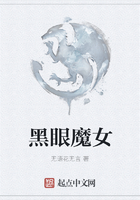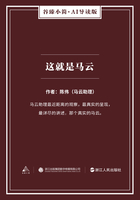The next morning King Charles I. was haled by a strong guard before the high court which was to judge him. All London was crowding to the doors of the house. The throng was terrific, and it was not till after much pushing and some fighting that our friends reached their destination. When they did so they found the three lower rows of benches already occupied; but being anxious not to be too conspicuous, all, with the exception of Porthos, who had a fancy to display his red doublet, were quite satisfied with their places, the more so as chance had brought them to the centre of their row, so that they were exactly opposite the arm-chair prepared for the royal prisoner.
Toward eleven o'clock the king entered the hall, surrounded by guards, but wearing his head covered, and with a calm expression turned to every side with a look of complete assurance, as if he were there to preside at an assembly of submissive subjects, rather than to meet the accusations of a rebel court.
The judges, proud of having a monarch to humiliate, evidently prepared to enjoy the right they had arrogated to themselves, and sent an officer to inform the king that it was customary for the accused to uncover his head.
Charles, without replying a single word, turned his head in another direction and pulled his felt hat over it. Then when the officer was gone he sat down in the arm-chair opposite the president and struck his boots with a little cane which he carried in his hand. Parry, who accompanied him, stood behind him.
D'Artagnan was looking at Athos, whose face betrayed all those emotions which the king, possessing more self-control, had banished from his own. This agitation in one so cold and calm as Athos, frightened him.
"I hope," he whispered to him, "that you will follow his majesty's example and not get killed for your folly in this den."
"Set your mind at rest," replied Athos.
"Aha!" continued D'Artagnan, "it is clear that they are afraid of something or other; for look, the sentinels are being reinforced. They had only halberds before, now they have muskets. The halberds were for the audience in the rear; the muskets are for us."
"Thirty, forty, fifty, sixty-five men," said Porthos, counting the reinforcements.
"Ah!" said Aramis, "but you forget the officer."
D'Artagnan grew pale with rage. He recognized Mordaunt, who with bare sword was marshalling the musketeers behind the king and opposite the benches.
"Do you think they have recognized us?" said D'Artagnan. "In that case I should beat a retreat. I don't care to be shot in a box."
"No," said Aramis, "he has not seen us. He sees no one but the king. Mon Dieu! how he stares at him, the insolent dog! Does he hate his majesty as much as he does us?"
"Pardi," answered Athos "we only carried off his mother; the king has spoiled him of his name and property."
"True," said Aramis; "but silence! the president is speaking to the king."
"Stuart," Bradshaw was saying, "listen to the roll call of your judges and address to the court any observations you may have to make."
The king turned his head away, as if these words had not been intended for him. Bradshaw waited, and as there was no reply there was a moment of silence.
Out of the hundred and sixty-three members designated there were only seventy-three present, for the rest, fearful of taking part in such an act, had remained away.
When the name of Colonel Fairfax was called, one of those brief but solemn silences ensued, which announced the absence of the members who had no wish to take a personal part in the trial.
"Colonel Fairfax," repeated Bradshaw.
"Fairfax," answered a laughing voice, the silvery tone of which betrayed it as that of a woman, "is not such a fool as to be here."
A loud laugh followed these words, pronounced with that boldness which women draw from their own weakness—a weakness which removes them beyond the power of vengeance.
"It is a woman's voice," cried Aramis; "faith, I would give a good deal if she is young and pretty." And he mounted on the bench to try and get a sight of her.
"By my soul," said Aramis, "she is charming. Look D'Artagnan; everybody is looking at her; and in spite of Bradshaw's gaze she has not turned pale."
"It is Lady Fairfax herself," said D'Artagnan. "Don't you remember, Porthos, we saw her at General Cromwell's?"
The roll call continued.
"These rascals will adjourn when they find that they are not in sufficient force," said the Comte de la Fere.
"You don't know them. Athos, look at Mordaunt's smile. Is that the look of a man whose victim is likely to escape him? Ah, cursed basilisk, it will be a happy day for me when I can cross something more than a look with you."
"The king is really very handsome," said Porthos; "and look, too, though he is a prisoner, how carefully he is dressed. The feather in his hat is worth at least five-and-twenty pistoles. Look at it, Aramis."
The roll call finished, the president ordered them to read the act of accusation. Athos turned pale. A second time he was disappointed in his expectation. Notwithstanding the judges were so few the trial was to continue; the king then, was condemned in advance.
"I told you so, Athos," said D'Artagnan, shrugging his shoulders. "Now take your courage in both hands and hear what this gentleman in black is going to say about his sovereign, with full license and privilege."
Never till then had a more brutal accusation or meaner insults tarnished kingly majesty.
Charles listened with marked attention, passing over the insults, noting the grievances, and, when hatred overflowed all bounds and the accuser turned executioner beforehand, replying with a smile of lofty scorn.
"The fact is," said D'Artagnan, "if men are punished for imprudence and triviality, this poor king deserves punishment. But it seems to me that that which he is just now undergoing is hard enough."
"In any case," Aramis replied, "the punishment should fall not on the king, but on his ministers; for the first article of the constitution is, 'The king can do no wrong.'"
"As for me," thought Porthos, giving Mordaunt his whole attention, "were it not for breaking in on the majesty of the situation I would leap down from the bench, reach Mordaunt in three bounds and strangle him; I would then take him by the feet and knock the life out of these wretched musketeers who parody the musketeers of France. Meantime, D'Artagnan, who is full of invention, would find some way to save the king. I must speak to him about it."
As to Athos, his face aflame, his fists clinched, his lips bitten till they bled, he sat there foaming with rage at that endless parliamentary insult and that long enduring royal patience; the inflexible arm and steadfast heart had given place to a trembling hand and a body shaken by excitement.
At this moment the accuser concluded with these words: "The present accusation is preferred by us in the name of the English people."
At these words there was a murmur along the benches, and a second voice, not that of a woman, but a man's, stout and furious, thundered behind D'Artagnan.
"You lie!" it cried. "Nine-tenths of the English people are horrified at what you say."
This voice was that of Athos, who, standing up with outstretched hand and quite out of his mind, thus assailed the public accuser.
King, judges, spectators, all turned their eyes to the bench where the four friends were seated. Mordaunt did the same and recognized the gentleman, around whom the three other Frenchmen were standing, pale and menacing. His eyes glittered with delight. He had discovered those to whose death he had devoted his life. A movement of fury called to his side some twenty of his musketeers, and pointing to the bench where his enemies were: "Fire on that bench!" he cried.
But with the rapidity of thought D'Artagnan seized Athos by the waist, and followed by Porthos with Aramis, leaped down from the benches, rushed into the passages, and flying down the staircase were lost in the crowd without, while the muskets within were pointed on some three thousand spectators, whose piteous cries and noisy alarm stopped the impulse already given to bloodshed.
Charles also had recognized the four Frenchmen. He put one hand on his heart to still its beating and the other over his eyes, that he might not witness the slaying of his faithful friends.
Mordaunt, pale and trembling with anger, rushed from the hall sword in hand, followed by six pikemen, pushing, inquiring and panting in the crowd; and then, having found nothing, returned.
The tumult was indescribable. More than half an hour passed before any one could make himself heard. The judges were looking for a new outbreak from the benches. The spectators saw the muskets leveled at them, and divided between fear and curiosity, remained noisy and excited.
Quiet was at length restored.
"What have you to say in your defense?" asked Bradshaw of the king.
Then rising, with his head still covered, in the tone of a judge rather than a prisoner, Charles began.
"Before questioning me," he said, "reply to my question. I was free at Newcastle and had there concluded a treaty with both houses. Instead of performing your part of this contract, as I performed mine, you bought me from the Scotch, cheaply, I know, and that does honor to the economic talent of your government. But because you have paid the price of a slave, do you imagine that I have ceased to be your king? No. To answer you would be to forget it. I shall only reply to you when you have satisfied me of your right to question me. To answer you would be to acknowledge you as my judges, and I only acknowledge you as my executioners." And in the middle of a deathlike silence, Charles, calm, lofty, and with his head still covered, sat down again in his arm-chair.
"Why are not my Frenchmen here?" he murmured proudly and turning his eyes to the benches where they had appeared for a moment; "they would have seen that their friend was worthy of their defense while alive, and of their tears when dead."
"Well," said the president, seeing that Charles was determined to remain silent, "so be it. We will judge you in spite of your silence. You are accused of treason, of abuse of power, and murder. The evidence will support it. Go, and another sitting will accomplish what you have postponed in this."
Charles rose and turned toward Parry, whom he saw pale and with his temples dewed with moisture.
"Well, my dear Parry," said he, "what is the matter, and what can affect you in this manner?"
"Oh, my king," said Parry, with tears in his eyes and in a tone of supplication, "do not look to the left as we leave the hall."
"And why, Parry?"
"Do not look, I implore you, my king."
"But what is the matter? Speak," said Charles, attempting to look across the hedge of guards which surrounded him.
"It is—but you will not look, will you?—it is because they have had the axe, with which criminals are executed, brought and placed there on the table. The sight is hideous."
"Fools," said Charles, "do they take me for a coward, like themselves? You have done well to warn me. Thank you, Parry."
When the moment arrived the king followed his guards out of the hall. As he passed the table on which the axe was laid, he stopped, and turning with a smile, said:
"Ah! the axe, an ingenious device, and well worthy of those who know not what a gentleman is; you frighten me not, executioner's axe," added he, touching it with the cane which he held in his hand, "and I strike you now, waiting patiently and Christianly for you to return the blow."
And shrugging his shoulders with unaffected contempt he passed on. When he reached the door a stream of people, who had been disappointed in not being able to get into the house and to make amends had collected to see him come out, stood on each side, as he passed, many among them glaring on him with threatening looks.
"How many people," thought he, "and not one true friend."
And as he uttered these words of doubt and depression within his mind, a voice beside him said:
"Respect to fallen majesty."
The king turned quickly around, with tears in his eyes and heart. It was an old soldier of the guards who could not see his king pass captive before him without rendering him this final homage. But the next moment the unfortunate man was nearly killed with heavy blows of sword-hilts, and among those who set upon him the king recognized Captain Groslow.
"Alas!" said Charles, "that is a severe chastisement for a very trifling fault."
He continued his walk, but he had scarcely gone a hundred paces, when a furious fellow, leaning between two soldiers, spat in the king's face, as once an infamous and accursed Jew spit in the face of Jesus of Nazareth. Loud roars of laughter and sullen murmurs arose together. The crowd opened and closed again, undulating like a stormy sea, and the king imagined that he saw shining in the midst of this living wave the bright eyes of Athos.
Charles wiped his face and said with a sad smile: "Poor wretch, for half a crown he would do as much to his own father."
The king was not mistaken. Athos and his friends, again mingling with the throng, were taking a last look at the martyr king.
When the soldier saluted Charles, Athos's heart bounded for joy; and that unfortunate, on coming to himself, found ten guineas that the French gentleman had slipped into his pocket. But when the cowardly insulter spat in the face of the captive monarch Athos grasped his dagger. But D'Artagnan stopped his hand and in a hoarse voice cried, "Wait!"
Athos stopped. D'Artagnan, leaning on Athos, made a sign to Porthos and Aramis to keep near them and then placed himself behind the man with the bare arms, who was still laughing at his own vile pleasantry and receiving the congratulations of several others.
The man took his way toward the city. The four friends followed him. The man, who had the appearance of being a butcher, descended a little steep and isolated street, looking on to the river, with two of his friends. Arrived at the bank of the river the three men perceived that they were followed, turned around, and looking insolently at the Frenchmen, passed some jests from one to another.
"I don't know English, Athos," said D'Artagnan; "but you know it and will interpret for me."
Then quickening their steps they passed the three men, but turned back immediately, and D'Artagnan walked straight up to the butcher and touching him on the chest with the tip of his finger, said to Athos:
"Say this to him in English: 'You are a coward. You have insulted a defenseless man. You have befouled the face of your king. You must die.'"
Athos, pale as a ghost, repeated these words to the man, who, seeing the bodeful preparations that were making, put himself in an attitude of defense. Aramis, at this movement, drew his sword.
"No," cried D'Artagnan, "no steel. Steel is for gentlemen."
And seizing the butcher by the throat:
"Porthos," said he, "kill this fellow for me with a single blow."
Porthos raised his terrible fist, which whistled through the air like a sling, and the portentous mass fell with a smothered crash on the insulter's skull and crushed it. The man fell like an ox beneath the poleaxe. His companions, horror-struck, could neither move nor cry out.
"Tell them this, Athos," resumed D'Artagnan; "thus shall all die who forget that a captive man is sacred and that a captive king doubly represents the Lord."
Athos repeated D'Artagnan's words.
The fellows looked at the body of their companion, swimming in blood, and then recovering voice and legs together, ran screaming off.
"Justice is done," said Porthos, wiping his forehead.
"And now," said D'Artagnan to Athos, "entertain no further doubts about me; I undertake all that concerns the king."















